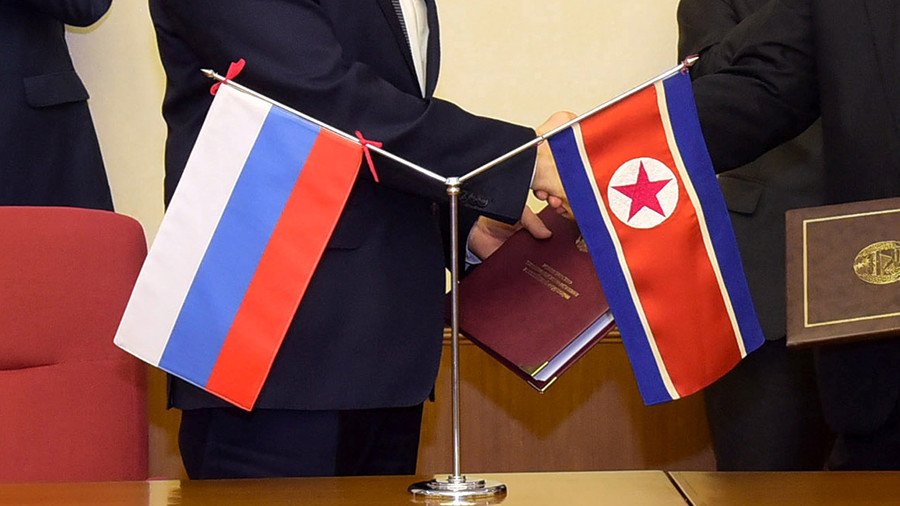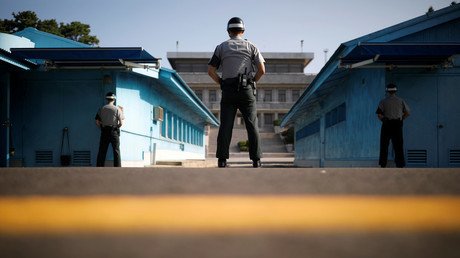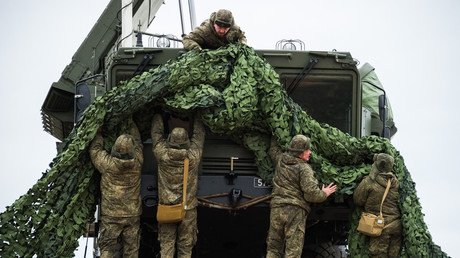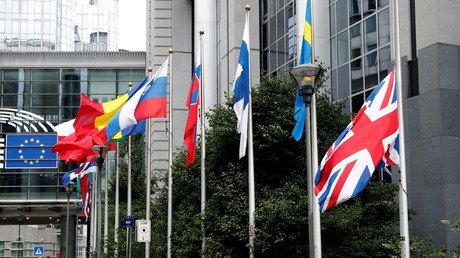‘US will say they saved the world’ while peaceful Russian approach on N. Korea won – Moscow

Pyongyang’s move to halt nuclear and missile tests is more the result of collective efforts, including that of Russia and China, than US threats to “wipe off the map” North Korea, a top Russian senator says.
On Friday, the North Korean leadership announced it is freezing the nuclear and ballistic missile programs and scrapping a major test site. The development could be the “news of the year,” head of Russia's Foreign Affairs Committee of the Federation Council, Konstantin Kosachev, believes.
Yet, it is not the end of the long-running crisis in the region which was once “at the threshold of a nuclear conflict”. Much more lies ahead – from North Korea returning to the Treaty on the Non-Proliferation of Nuclear Weapons and cooperation with the UN nuclear watchdog, to Washington abandoning its aggressive rhetoric.
However, progress in the Korean Peninsula crisis was made possible thanks to the efforts of “five countries” – members of the six-party talks – that, apart from the US, include North and South Korea, Japan, China, and Russia.
“Keeping the channels of the dialogue with Pyongyang by Beijing and Moscow was not [a] less important instrument than public threats to ‘wipe off the map’ from Washington,” the senator said.
In fact, the US has already taken credit for Pyongyang’s decision.
“Welcome news. Maximum pressure is working. The American people and our Allies know we would not be at this point without the strong leadership of @POTUS [Donald] Trump,” US Vice President Mike Pence tweeted.
Welcome news. Maximum pressure is working. The American people and our Allies know we would not be at this point without the strong leadership of @POTUS Trump. US will keep the pressure on North Korea as plans for the Summit continue. America standing strong! https://t.co/bPKFxGCqsw
— Vice President Mike Pence (@VP) April 21, 2018
Russia has repeatedly warned the US against military action against North Korea, advocating instead a diplomatic approach. Moscow has not stopped dialogue even “for a minute,” which was a “responsible” and “accurate” decision that finally worked out, according to Kosachev.
“The line of political settlement and peaceful resolution of disputes, which Russia has consistently been advocating for in all situations, has won out,” he said.
Trump has on numerous occasions traded insults with the leader of North Korea, Kim Jong-un, and has said that the country's long-range missile program should be met with unprecedented “fire and fury.” The US leader has also stated that talking to North Korea “is not an answer.” What's more, when former Secretary of State Rex Tillerson was trying to hammer out an agreement over the Korean crisis, Trump said Tillerson was simply “loosing time.” At one point, Trump did state that talks may be necessary, but said they are unlikely to yield any results.
#Japan wants 'complete' denuclearization of #NorthKoreahttps://t.co/25XDUlsPiL
— RT (@RT_com) April 21, 2018
Russia’s Foreign Ministry, meanwhile, called on the US and its major ally in the region, South Korea, to make “adequate reciprocal steps” and reduce their military activity in the region. Pyongyang has repeatedly lashed out at American war games on its doorstep which it deems a threat to national security. While supporting a number of UN Security Council sanctions on North Korea, Moscow also cautioned that the US-led drills are “provoking” Kim Jong-un into striving for new weapons.
However, the recent change in Kim's rhetoric is proof again that diploamtic efforts are able to aid a peaceful resolution of the crisis, Russia’s upper house Committee for International Relations, Senator Aleksey Chepa said. He particularly cited a joint Russian-Chinese initiative. Last year, Moscow and Beijing put forward a ‘double freeze’ plan calling for a simultaneous halt to North Korea’s tests and the US’ war games in the region. However, Washington ignored these calls and continued its maximum pressure and bellicose line.
“If North Korea gets guarantees for its security and the threats to it from the West stop, then naturally the denuclearization of the region will happen,” Chepa told Inerfax. “That is what Russia and China have been always talking about, and today the program suggested by them is practically being implemented.”
North Korea’s decision to freeze its nuclear and missile programs comes just ahead of a much-anticipated meeting between Kim and South Korean President Moon Jae-in on April 27. The world also awaits one more unprecedented event – a meeting between Kim Jong-un and US President Donald Trump. The date for the summit, however, has not been announced yet.
If you like this story, share it with a friend!















